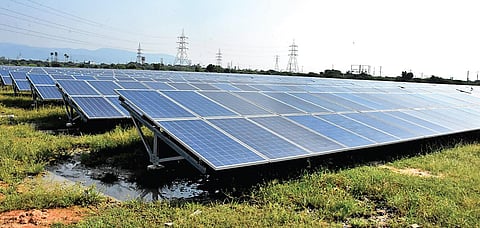

NEW DELHI: The share of renewables in electricity generation must increase a whopping 55-fold if India is to achieve net-zero emissions by 2050, according to a report from the Council on Energy, Environment and Wate (CEEW) released on Monday.
According to the council, India will need to generate at least 83 per cent of its electricity from (non-hydro power) renewable energy sources by 2050 if it is to reach the goal—a massive 55-fold increase in the use of non-hydro renewables in electricity generation within the coming three decades. This figure had stood at only 160 Terawatt-hour (TWh) (10 per cent) in 2019.
Further, the share of electricity in India’s industrial energy use needs to rise rise three-fold, from 20.3 per cent in 2018 to 70 per cent in 2050, CEEW noted. The share of electric vehicles in car sales will also have to rise to 76 per cent by 2050 from just 0.1 per cent in 2019.
CEEW said that these estimates are based on its best understanding of progress on mitigation technologies. To meet net-zero, India will need to either eliminate greenhouse gas (GHG) emissions or balance these by sequestering GHG emissions.
Tje report also highlighted that India will need to reach peak emissions within this decade if it were to achieve net-zero emissions by 2050, which if achieved, would be a pace of transition unlike anything the world has seen before. This will give India an extremely narrow window to ensure a smooth and equitable transition.
Advanced economies, including China, Japan, the UK, and the US, will have taken at least 30, and at times well over 40 years for the transition being discussed in the report. Advanced economies also peaked emissions at much higher levels of development.